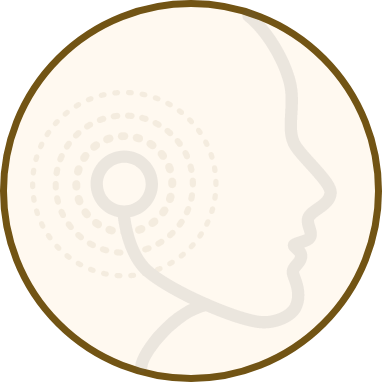The Importance of Sleep and Breathing
 Did you know bad sleep can cause temporomandibular joint disorder (TMJ)? This condition affects the jaw joint and can lead to pain, discomfort, and difficulty in jaw movement. Poor slumber quality has been linked to an increased risk of developing TMJ. By addressing shut-eye issues, we may help and prevent TMJ symptoms.
Did you know bad sleep can cause temporomandibular joint disorder (TMJ)? This condition affects the jaw joint and can lead to pain, discomfort, and difficulty in jaw movement. Poor slumber quality has been linked to an increased risk of developing TMJ. By addressing shut-eye issues, we may help and prevent TMJ symptoms.
Tips for Achieving Better Shut-eye
Having good sleep hygiene is crucial. Here are a few tips to slumber more soundly:
Stick to a Consistent Sleep Schedule: Go to bed and wake up at the same time every day, even on weekends.
Build a Relaxing Bedtime Routine: Engage in calming activities before bed, such as reading a book or taking a warm bath. Avoid stimulating activities like watching TV or using electronic devices.
Create a Comfortable Environment: Make sure your bedroom is quiet, dark, and at a comfortable temperature. Invest in a supportive mattress and pillows.
Limit Stimulants and Avoid Heavy Meals Before Bed: Avoid consuming caffeine, nicotine, and alcohol close to bedtime. Additionally, refrain from eating heavy meals that can cause discomfort and disrupt slumber.
Manage Stress: Practice stress management techniques like meditation, deep breathing exercises, or journalling to help calm the mind before snoozing.
Treating the Cause, Not Just the Symptoms
At TMJ Therapy Centre, we believe in addressing the root cause of sleep and breathing issues rather than merely managing symptoms. Our personalised treatment plans aim to identify and address the underlying factors contributing to poor shut-eye quality and breathing difficulties. By targeting the cause, we strive to provide long-term relief and improve your overall quality of life.
Mandibular Advancement Devices
One effective treatment option we offer is the use of mandibular advancement devices, also known as sleep appliances. These devices are designed to reposition the jaw and tongue, helping to alleviate snoring and obstructive sleep apnoea. Using a custom-fit appliance may help restore proper airflow and promote healthy breathing during slumber.
The Impact of Chronic Mouth Breathing
Did you know chronic mouth breathing can have serious oral and overall health consequences? Breathing through our mouths instead of our noses can lead to dry mouth, increased risk of cavities, and even facial deformities over time. At TMJ Therapy Centre, we can help chronic mouth breathers learn how to breathe through the nose, minimising their mouth breathing and improving their overall health.
Addressing Inspiratory Flow Limitation
During slumber, inspiratory flow limitation can occur when the airflow is restricted by the narrowing of the airway caused by the tongue and soft palate. This can lead to breathing difficulties and disrupt the sleep cycle. Our thorough evaluations at TMJ Therapy Centre allow us to identify and address these limitations, ensuring optimal airflow and promoting restful sleep.
Slumber Soundly & Put Your TMJ to Rest
Breathing better means sleeping better, and that can translate to experiencing fewer TMJ symptoms. Call our practice today; we want to help you get better shut-eye tonight!
CONTACT US
Any invasive or surgical procedure may carry risks. Before moving forward, it is recommended that you seek a second opinion from an appropriately licensed medical professional.


